
Digital Equipment Corporation, using the trademark Digital, was a major American company in the computer industry from the 1960s to the 1990s. The company was co-founded by Ken Olsen and Harlan Anderson in 1957. Olsen was president until he was forced to resign in 1992, after the company had gone into precipitous decline.

Lisp machines are general-purpose computers designed to efficiently run Lisp as their main software and programming language, usually via hardware support. They are an example of a high-level language computer architecture, and in a sense, they were the first commercial single-user workstations. Despite being modest in number Lisp machines commercially pioneered many now-commonplace technologies, including effective garbage collection, laser printing, windowing systems, computer mice, high-resolution bit-mapped raster graphics, computer graphic rendering, and networking innovations such as Chaosnet. Several firms built and sold Lisp machines in the 1980s: Symbolics, Lisp Machines Incorporated, Texas Instruments, and Xerox. The operating systems were written in Lisp Machine Lisp, Interlisp (Xerox), and later partly in Common Lisp.
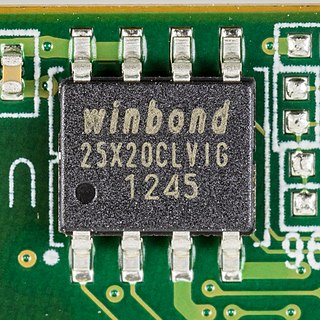
In computing, firmware is a specific class of computer software that provides the low-level control for a device's specific hardware. Firmware, such as the BIOS of a personal computer, may contain basic functions of a device, and may provide hardware abstraction services to higher-level software such as operating systems. For less complex devices, firmware may act as the device's complete operating system, performing all control, monitoring and data manipulation functions. Typical examples of devices containing firmware are embedded systems, home and personal-use appliances, computers, and computer peripherals.

The Amiga 600, also known as the A600, is a home computer introduced in March 1992. It is the final Amiga model based on the Motorola 68000 and the 1990 Amiga Enhanced Chip Set. A redesign of the Amiga 500 Plus, it adds the option of an internal hard disk drive and a PCMCIA port. Lacking a numeric keypad, the A600 is only slightly larger than an IBM PC keyboard, weighing approximately 6 pounds (2.72kg). It shipped with AmigaOS 2.0, which was considered more user-friendly than earlier versions of the operating system.
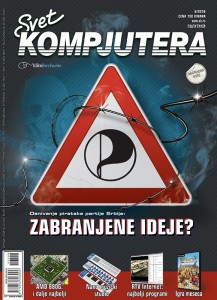
Svet kompjutera is a computer magazine published in Serbia. It has the highest circulation in the country. Svet kompjutera deals with subjects on home, PC computers, tablet computers, smartphones, and video game consoles as well as their use for work and entertainment. Its aim is to inform the readers about the latest events in Serbian and world computer scene and to present products that are interesting for its readers. Its editorial staff sees this as their main task to advise computer users on how to use their hardware and software in the best way.
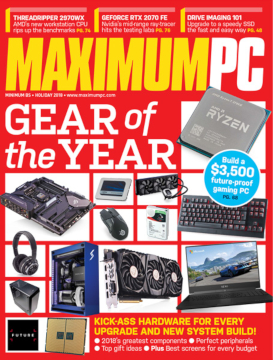
Maximum PC, formerly known as boot, is an American magazine and website published by Future US. It focuses on cutting-edge PC hardware, with an emphasis on product reviews, step-by-step tutorials, and in-depth technical briefs. Component coverage areas include CPUs, motherboards, core-logic chipsets, memory, videocards, mechanical hard drives, solid-state drives, optical drives, cases, component cooling, and anything else to do with recent tech news. Additional hardware coverage is directed at smartphones, tablet computers, cameras and other consumer electronic devices that interface with consumer PCs. Software coverage focuses on games, anti-virus suites, content-editing programs, and other consumer-level applications.
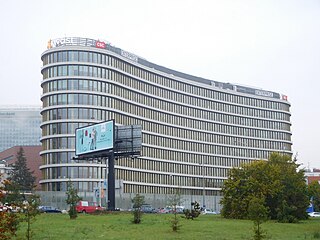
Avast Software s.r.o. is a Czech multinational cybersecurity software company headquartered in Prague, Czech Republic, that researches and develops computer security software, machine learning, and artificial intelligence. Avast has more than 435 million monthly active users and the second largest market share among anti-malware application vendors worldwide as of April 2020. The company has approximately 1,700 employees across its 25 offices worldwide. In July 2021, NortonLifeLock, an American cybersecurity company, announced that it was in talks to merge with Avast Software. In August 2021, Avast's board of directors agreed to an offer of US$8 billion.

PC Magazine is an American computer magazine published by Ziff Davis. A print edition was published from 1982 to January 2009. Publication of online editions started in late 1994 and continues as of 2024.

Grand Prix 3 is a computer racing simulator by MicroProse, released in 2000 by Hasbro Interactive.
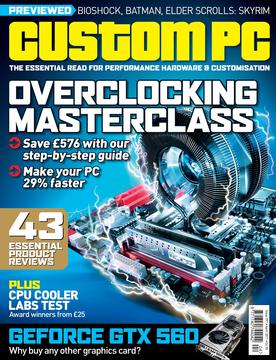
Custom PC was a UK-based computer magazine originally published by Dennis Publishing Ltd and subsequently sold to Raspberry Pi Trading Ltd. It was aimed at PC hardware enthusiasts, covering topics such as modding, overclocking, and PC gaming. The first issue was released in October 2003 and it was published monthly until the final issue, number 235, was released in February 2023.
In computing, minimalism refers to the application of minimalist philosophies and principles in the design and use of hardware and software. Minimalism, in this sense, means designing systems that use the least hardware and software resources possible.
PC Chip is a monthly Croatian computer magazine. It is one of three general computer magazines published in Croatia, along with its main competitors BUG and Vidi. The magazine is published by company A1 video d.o.o., which is also maintaining website pcchip.hr. The magazine has its headquarters in Zagreb and is also sold in Bosnia and Herzegovina, Slovenia, Serbia, but "digital sample" (pdf) is available to anybody with internet connection.

XtremPC was a computer magazine from Romania founded in 1998. XtremPC included previews and reviews on computer hardware, software, PC games and gadgets, as well as IT news. Although its major focus was on personal computers only, latter editions started including sections dedicated to game consoles as well. XtremPC was the first Romanian magazine to include a DVD in 2004, followed two years later by LeveL. The last issue of XtremPC was the May 2010 issue, which appeared on 3 June 2010. The further issuing of the magazine temporarily ended as a result of a drop in the number of readers.
Igromania is a Russian video game website and formerly a magazine.
Proprietary software is software that grants its creator, publisher, or other rightsholder or rightsholder partner a legal monopoly by modern copyright and intellectual property law to exclude the recipient from freely sharing the software or modifying it, and—in some cases, as is the case with some patent-encumbered and EULA-bound software—from making use of the software on their own, thereby restricting their freedoms.
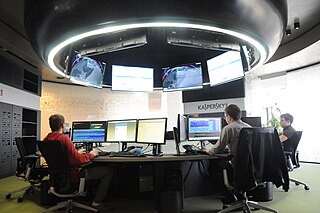
Kaspersky Lab is a Russian multinational cybersecurity and anti-virus provider headquartered in Moscow, Russia, and operated by a holding company in the United Kingdom. It was founded in 1997 by Eugene Kaspersky, Natalya Kaspersky and Alexey De-Monderik. Kaspersky Lab develops and sells antivirus, internet security, password management, endpoint security, and other cybersecurity products and services.

The Computer Paper was a monthly computer magazine that was published in Canada from February 1988 until November 2008. The magazine was originally published by Canada Computer Paper Inc. It was purchased in 1997 by Hebdo Mag International of Paris, France, and then to Piccolo Publishing Ltd of Toronto in 2003. Publication ceased in November 2008 due to declining ad revenues.

BUG is a Croatian monthly computer and information technology magazine, established in 1992 by a Croatian programmer and journalist Robert Gabelić. Published by the BUG publishing company, it is currently one of the most popular computer magazines in the country. It focuses primarily on PC hardware and software technology. The magazine also includes sections for video games, news, columnist writing, a helpdesk, and self-assembly.

Byte was a microcomputer magazine, influential in the late 1970s and throughout the 1980s because of its wide-ranging editorial coverage.

PC Games is a monthly-released PC gaming magazine published by the Computec Media GmbH in Germany.















